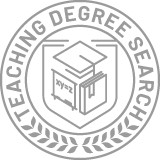Master’s Degrees in Education/Teaching of Individuals with Intellectual Disabilities
Education Levels of Education/Teaching of Individuals with Intellectual Disabilities Majors
During the most recent year for which data is available, 28 people earned their master's degree in education/teaching of individuals with intellectual disabilities. This makes it the 84th most popular master's degree program in the country.
The following table shows the number of diplomas awarded in education/teaching of individuals with intellectual disabilities at each degree level.
| Education Level | Number of Grads |
|---|---|
| Bachelor’s Degree | 45 |
| Master’s Degree | 28 |
| Graduate Certificate | 4 |
| Doctor’s Degree | 2 |
| Basic Certificate | 1 |
Earnings of Education/Teaching of Individuals with Intellectual Disabilities Majors With Master’s Degrees
We are unable to calculate the median earnings for education/teaching of individuals with intellectual disabilities majors with their master's degree due to lack of data.
Student Debt
We do not have the data to estimate the median debt for this class of people.
Student Diversity
More women than men pursue their master's degree in education/teaching of individuals with intellectual disabilities. About 82.1% of graduates with this degree are female.
| Gender | Number of Grads |
|---|---|
| Men | 5 |
| Women | 23 |

The racial-ethnic distribution of education/teaching of individuals with intellectual disabilities master’s degree students is as follows:
| Race/Ethnicity | Number of Grads |
|---|---|
| Asian | 2 |
| Black or African American | 1 |
| Hispanic or Latino | 3 |
| White | 19 |
| International Students | 0 |
| Other Races/Ethnicities | 3 |

Most Popular Education/Teaching of Individuals with Intellectual Disabilities Programs for Master’s Degrees
There are 10 colleges that offer a master’s degree in education/teaching of individuals with intellectual disabilities. Learn more about the most popular 10 below:
Morningside College tops the list of the most popular school in the U.S. for education/teaching of individuals with intellectual disabilities majors who are seeking their master's degree. Each year, around 2,400 students seeking various degrees attend the university. The average in-state tuition for full-time undergraduates is $36,680 per year, while in-state graduate students, on average, pay $11,111 per year. During the most recent year for which we have data, 9 people received their master's degree in education/teaching of individuals with intellectual disabilities from Morningside. Around 38% of these students were from an underrepresented racial-ethnic group, and 88% were women.
Rhode Island College comes in at #2 on our list of the most popular colleges offering master's degrees in education/teaching of individuals with intellectual disabilities. The average in-state tuition for full-time undergraduates is $9,481 per year, while in-state graduate students, on average, pay $8,910 per year. During the most recent year for which we have data, 7 people received their master's degree in education/teaching of individuals with intellectual disabilities from RIC.
Eastern Michigan University comes in at #3 on our list of the most popular colleges offering master's degrees in education/teaching of individuals with intellectual disabilities. Each year, around 16,200 students seeking various degrees attend the university. The average in-state tuition for full-time undergraduates is $15,200 per year, while in-state graduate students, on average, pay $17,231 per year. During the most recent year for which we have data, 4 people received their master's degree in education/teaching of individuals with intellectual disabilities from Eastern Michigan. Of these students, 67% were women and 33% were members of underrepresented racial-ethnic groups.
Teachers College at Columbia University is the 4th most popular school in the nation for students seeking a master's degree in education/teaching of individuals with intellectual disabilities. Roughly 4,500 attend the school each year. During the most recent year for which we have data, 3 people received their master's degree in education/teaching of individuals with intellectual disabilities from Teachers College. About 78% of this group were women, and 44% were students from an underrepresented racial-ethnic group.
University of St Thomas Minnesota comes in at #5 on our list of the most popular colleges offering master's degrees in education/teaching of individuals with intellectual disabilities. The average in-state tuition for full-time undergraduates is $50,788 per year, while in-state graduate students, on average, pay $21,611 per year. During the most recent year for which we have data, 2 people received their master's degree in education/teaching of individuals with intellectual disabilities from UST MN.
Converse College comes in at #6 on our list of the most popular colleges offering master's degrees in education/teaching of individuals with intellectual disabilities. Each year, around 1,300 students seeking various degrees attend the university. The average in-state tuition for full-time undergraduates is $22,746 per year, while in-state graduate students, on average, pay $7,750 per year. During the most recent year for which we have data, 1 people received their master's degree in education/teaching of individuals with intellectual disabilities from Converse. Of these students, 67% were women and 33% were members of underrepresented racial-ethnic groups.
Explore Major by State
Alabama
Arkansas
Connecticut
Florida
Idaho
Iowa
Louisiana
Massachusetts
Mississippi
Nebraska
New Jersey
North Carolina
Oklahoma
Rhode Island
Tennessee
Vermont
West Virginia
Related Majors
Below are some popular majors that are similar to education/teaching of individuals with intellectual disabilities that offer master’s degrees.
| Major | Annual Degrees Awarded |
|---|---|
| General Special Education | 14,052 |
| Teaching for Multiple Disabilities | 1,191 |
| Elementary Special Education | 1,076 |
| Early Childhood Special Education | 892 |
| Other Special Education & Teaching | 582 |
References
*The racial-ethnic minority student count is calculated by taking the total number of students and subtracting white students, international students, and students whose race/ethnicity was unknown. This number is then divided by the total number of students at the school to obtain the percentage of racial-ethnic minorities.
- College Factual
- National Center for Education Statistics
- O*NET Online
- Bureau of Labor Statistics
- Image Credit: By woodleywonderworks under License
More about our data sources and methodologies.






